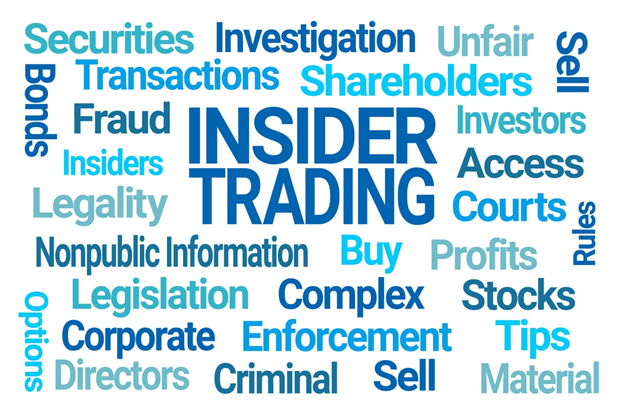Definition
Related Definitions
Insider Trading
Insider trading refers to the sale or purchase of securities of a publicly listed company on the basis of information or data that is yet to be made public. Insider trading is the breach of the trust and confidence that shareholders share with the management of the company.

Image source: © Robwilson39 | Megapixl.com
Insider trading can be legal or illegal depending on the person's fiduciary duty involved in the case. In most insider trading cases, a handful of people use their privilege to grab upon some critical information about the company, which is yet not in the public domain.
If the information is positive, they will buy the shares or securities from the market, leading to the stock's price rise. In case of any negative news which has the potential for a great fall in share prices, people with first-hand information will sell the shares at high prices and safeguard themselves from the fall. This is a breach of the fiduciary duty and could lead to a financial fine to a possible jail term for the people involved.
According to the U.S.A Securities and Exchange Commission (SEC), insider trading is defined as-:

Copyright © 2021 Kalkine Media Pty Ltd.
How is Insider Trading done?
Insider Trading involves corporate officers, directors and employees who, after having their hands on significant information or any corporate development news, either buy or sell the company's securities depending on the type of information.
Sometimes, the information is not intentionally leaked, but it reaches a specific group who may benefit from the news. Suppose the news went for printing before coming into circulation, and someone gets hold of the news from the printing press.
The scope of insider trading violations can be very broad. The law says that an insider should not trade in securities if he/she possesses confidential information about the company and should not take advantage of the situation.
What are the penalties of Insider Trading?
Violation of the prohibitions of insider trading can lead to civil and criminal fines, prison sentences or the combination of all. The civil and criminal fines are charged to the firms or companies that commit the violation. The criminal penalties, including a prison term or a fine or combination of both, can be charged to the individuals involved.
The degree of sentences depends on the rules and laws of the land. In U.SA, the maximum jail term of 20 years could be awarded to the persons involved and a maximum fine of US$5,000,000. For an entity, the maximum fine could amount to US$25,000,000.
Apart from these, a civil penalty may be charged up to three times the profit a person has made through the news or three times the loss the person averted from the information.
Are all Insider Trading illegal?
The answer is no. Not all insider trading is illegal. The sale and purchase of stocks and securities of a public listed entity take place regularly by the majority shareholders, including directors or employees of the company. These all transactions by the 'insiders' of the company need to be notified to the regulators within a stipulated time frame. The same should be published on the company's website.
Case studies of Insider Trading
U.S Vs Martha Stewart
The infamous media personality and businesswomen Ms Martha Stewart involved in an insider trading incident. Ms Stewart sold 4,000 shares of ImClone Systems using a piece of information from a broker. ImClone System’s cancer drug review was denied by the U.S regulators FDA, and the share price was bound to fall once the news was to come out.
The CEO of ImClone, used this information and asked his broker to transfer US$4.9 million worth of share to his daughter’s account. Then the CEO’s daughter asked the broker to sell US$2.5 million worth of share in the open market.
The broker being a friend of Ms Stewart, shared this piece of information upon which Ms Stewart shared her 4,000 shares. When Ms Stewart was asked about the incident, she gave false statements, which led to five months in prison and five months of home confinement along with two years of probation.
U.S Vs James O’ Hagen
Mr James O’ Hagen was a lawyer by profession and was associated with a law firm Dorsey & Whitney. The firm use to represent Grand Metropolitan PLC, which was planning a tender offer for Pilsbury. Mr O’Hogan took advantage of this information and brought options to the company. Mr O’Hagen was confident that the prices of the option would soar surely if the news comes out.
Mr O’Hagen made US$4.3 million from selling the options. Upon investigation, he was found guilty and had 57 charges to his name.
Amazon insider trading case
Mr Viky Bohra used confidential information retrieved from a relative and made a profit of US$1,428,264. Mr Bohra’s wife had access to information like revenue, sales and expenditures of Amazon.
Mr Bohra used the information which was not made public yet and purchased the shares of Amazon. His wife, who is no longer working in Amazon, will not face any charges as per the plea agreement. Mr Bohra has also agreed to forfeit the gains he made through the transactions and will face a jail term of no more than 33 months.
